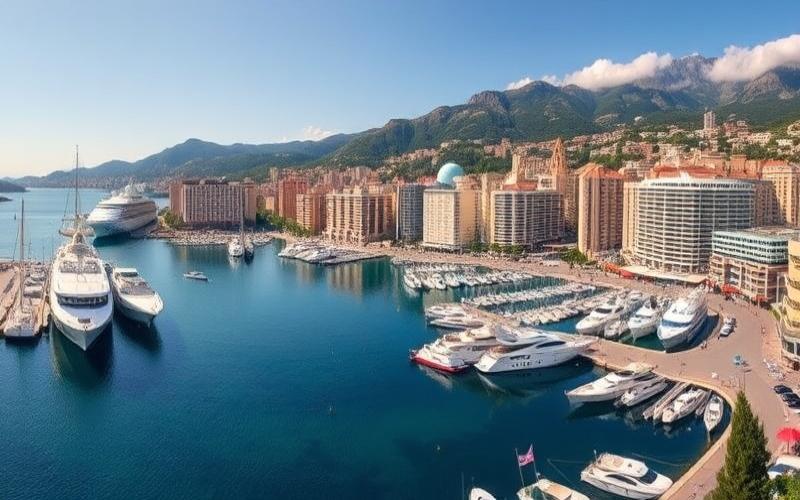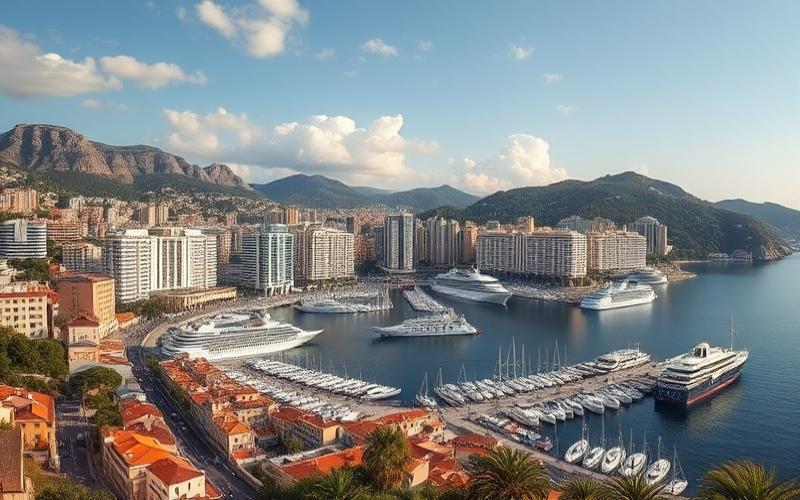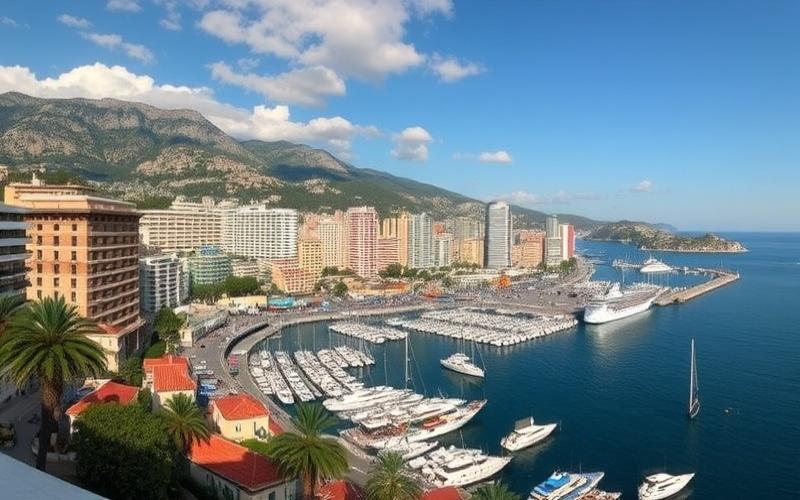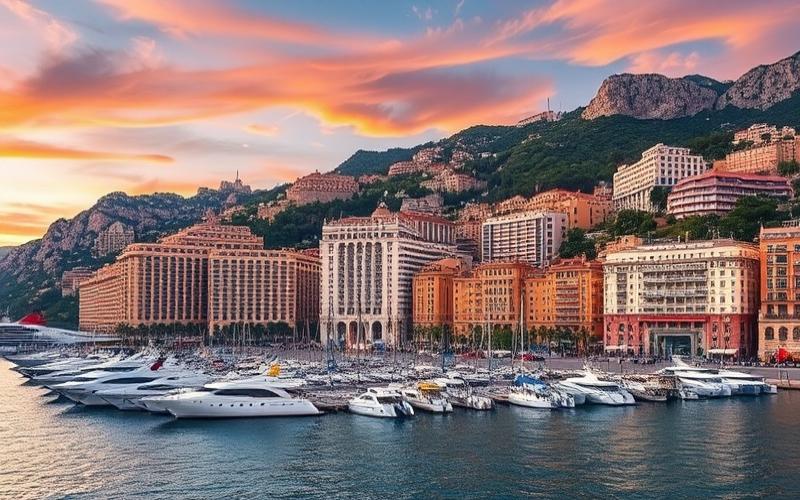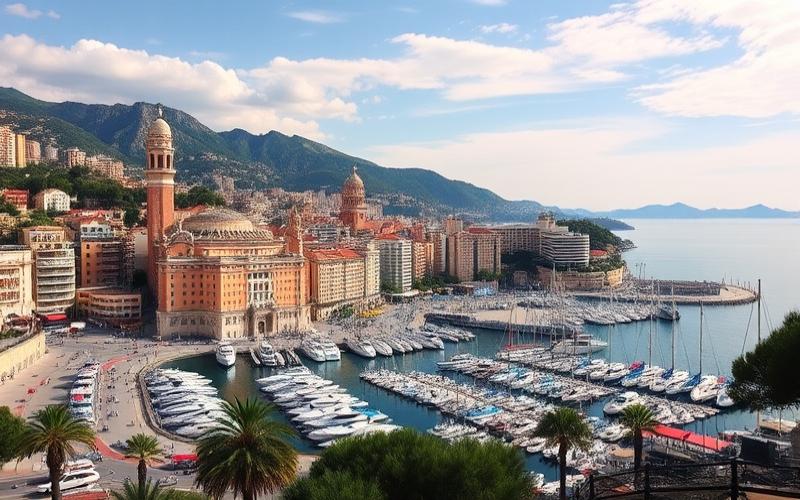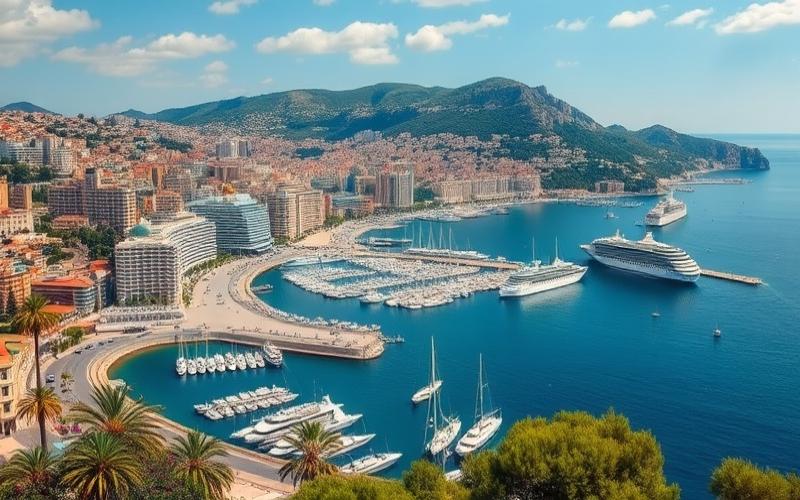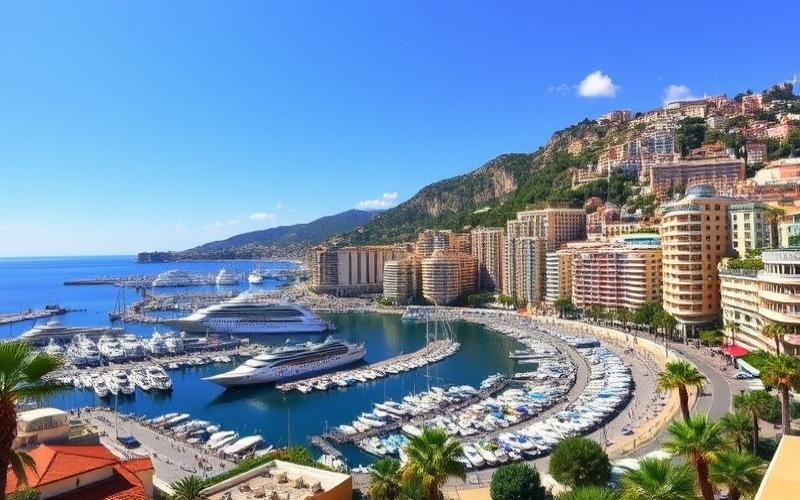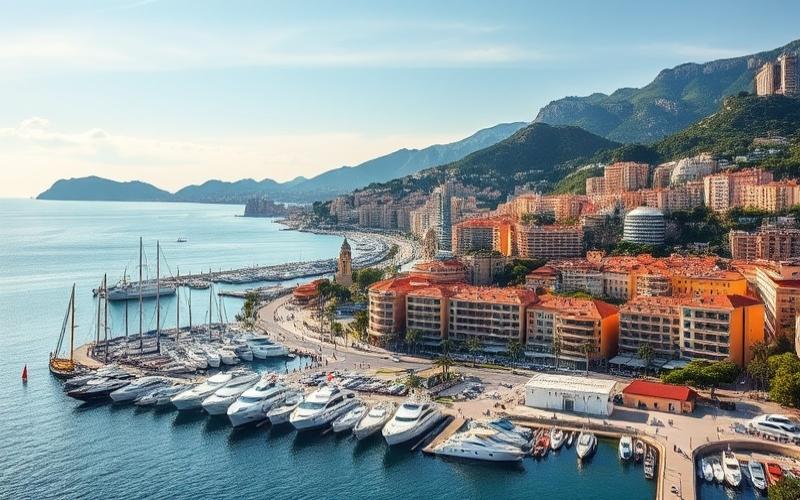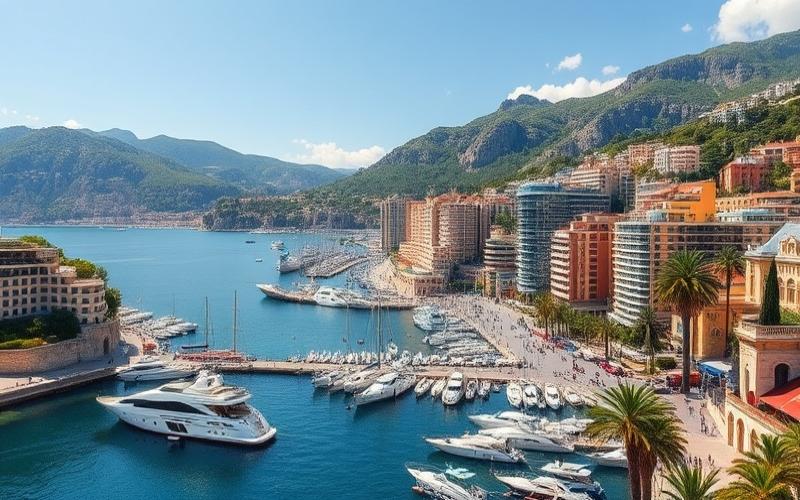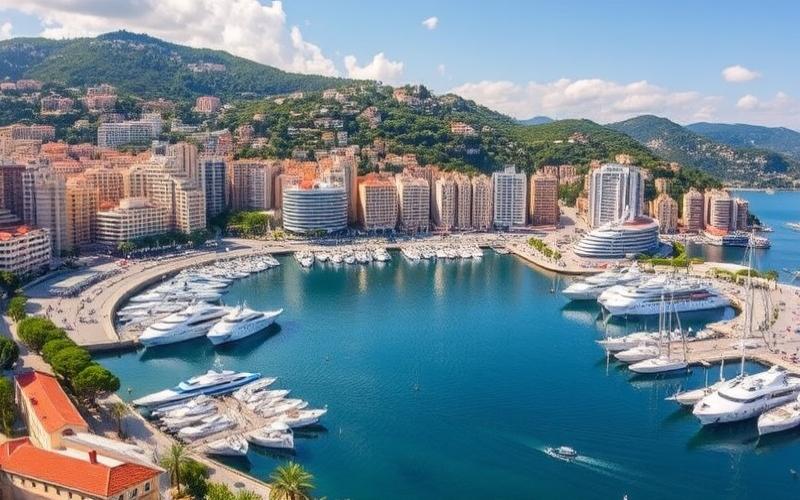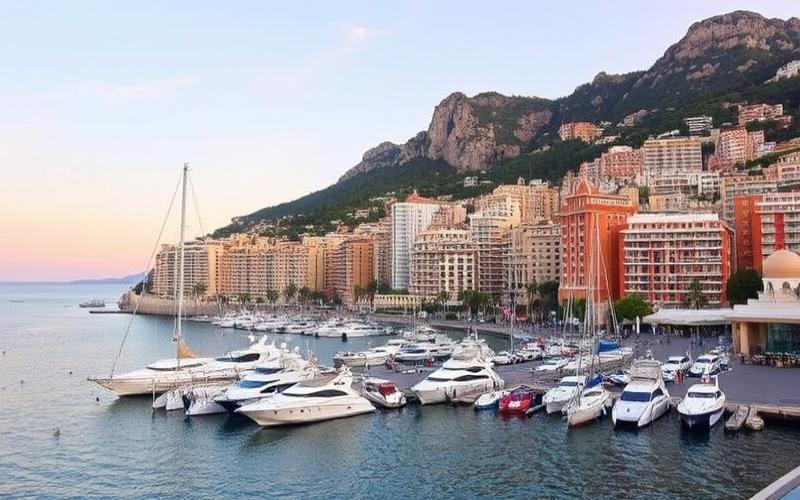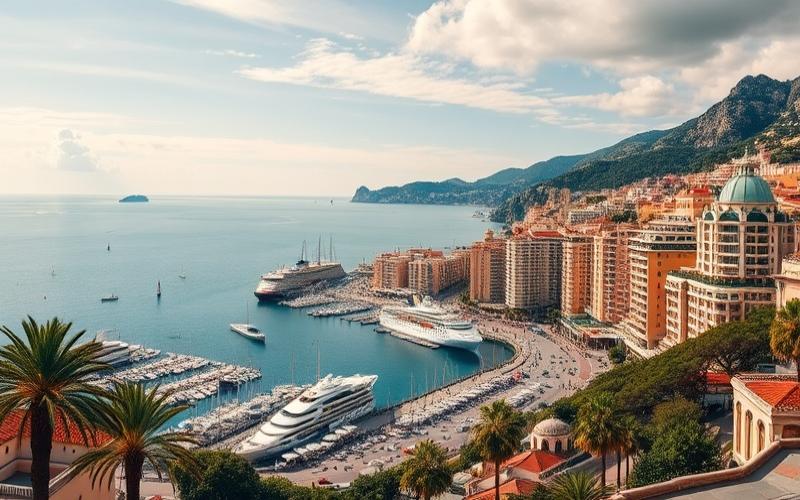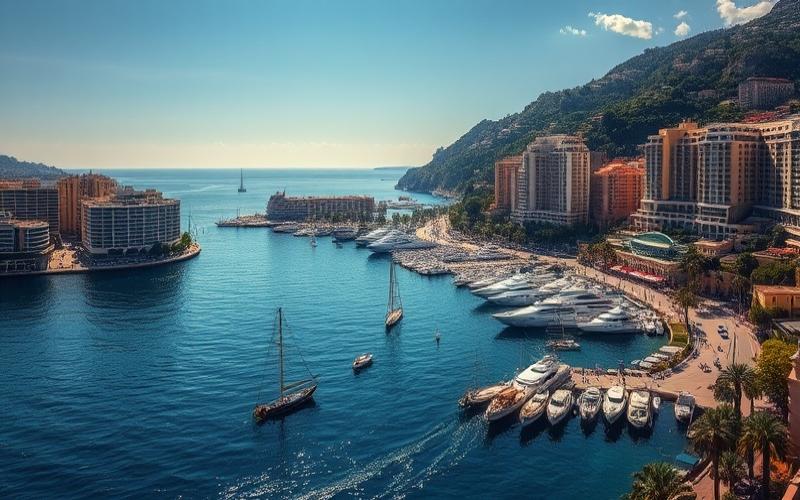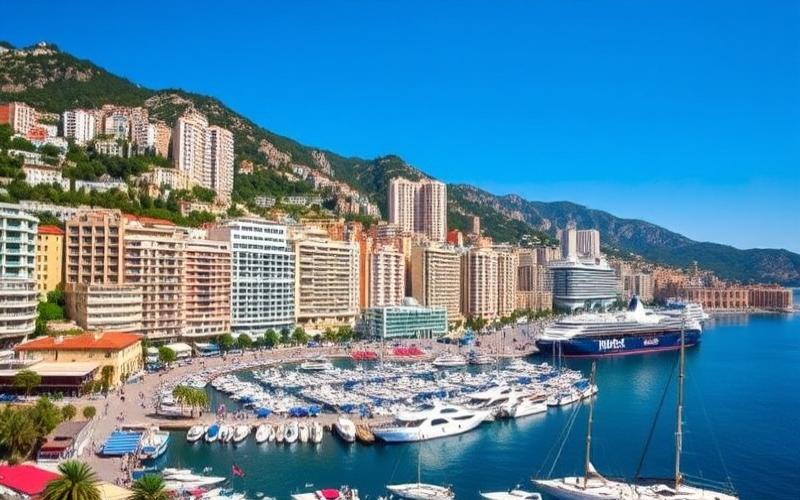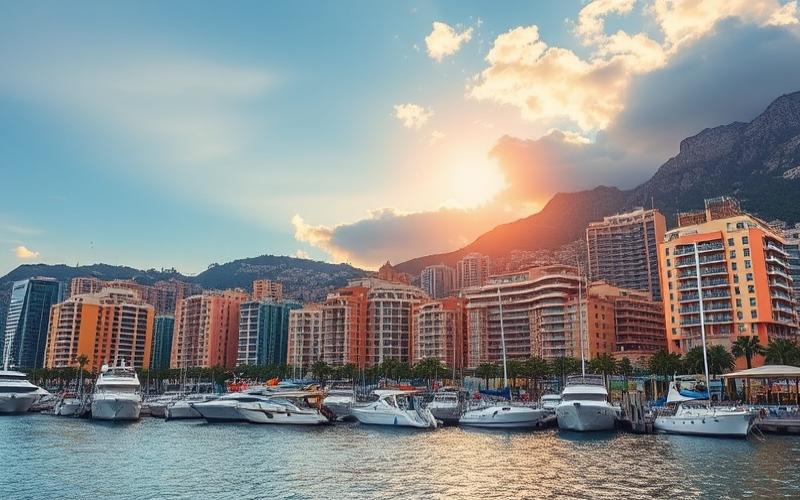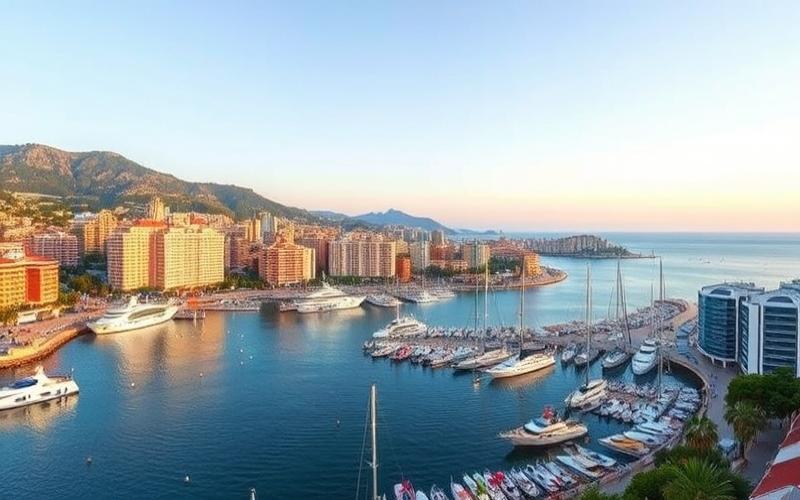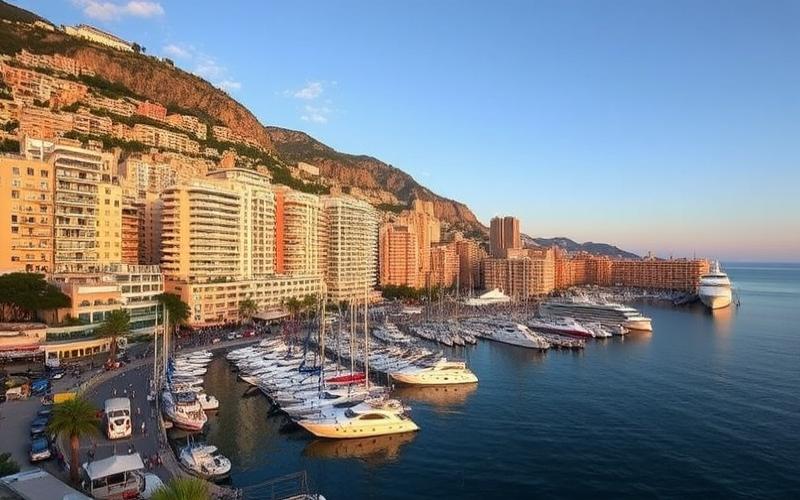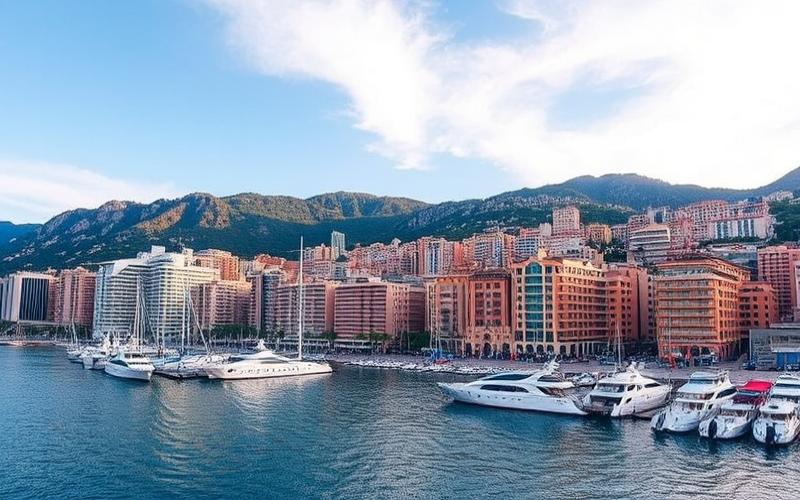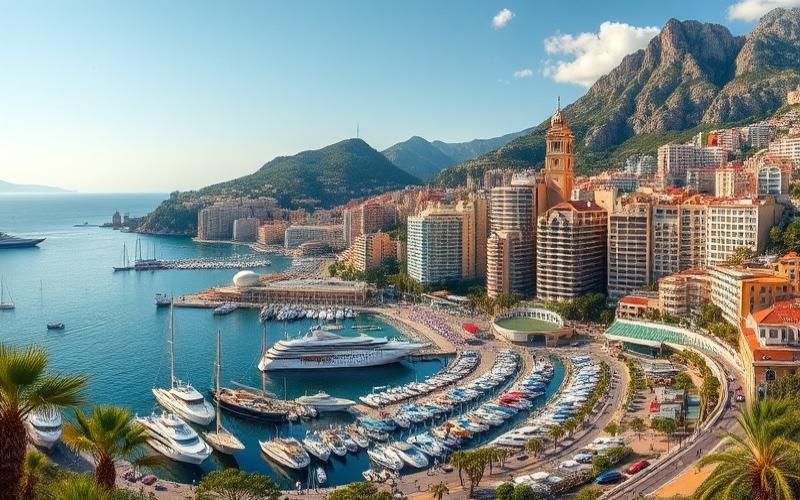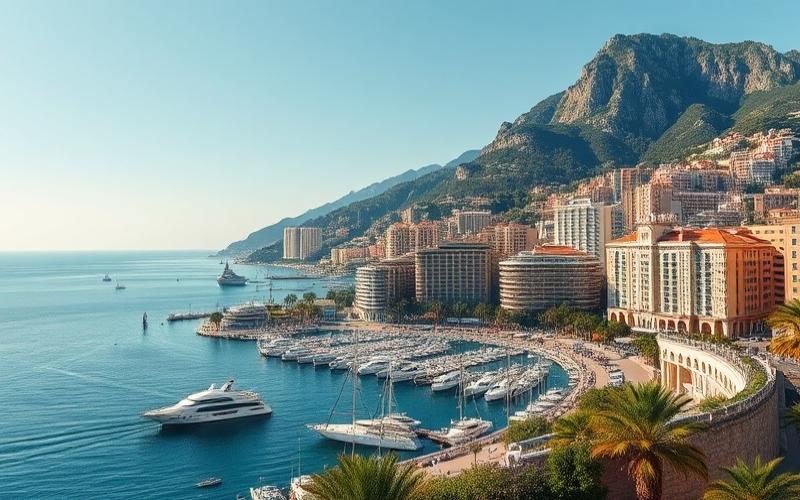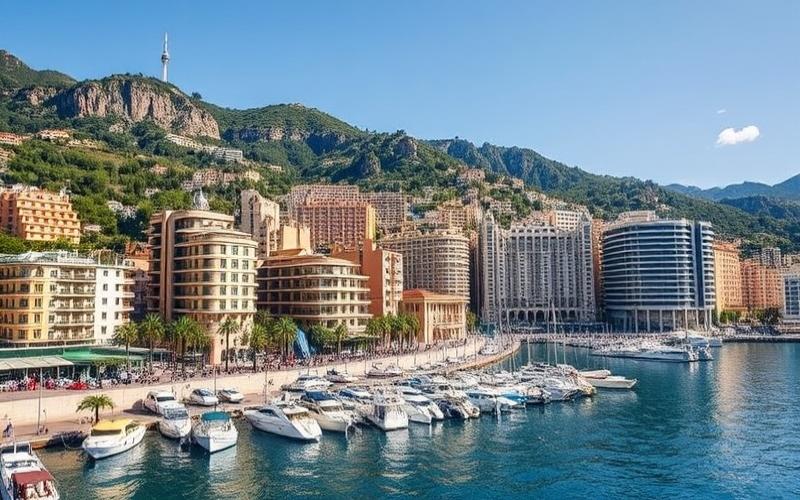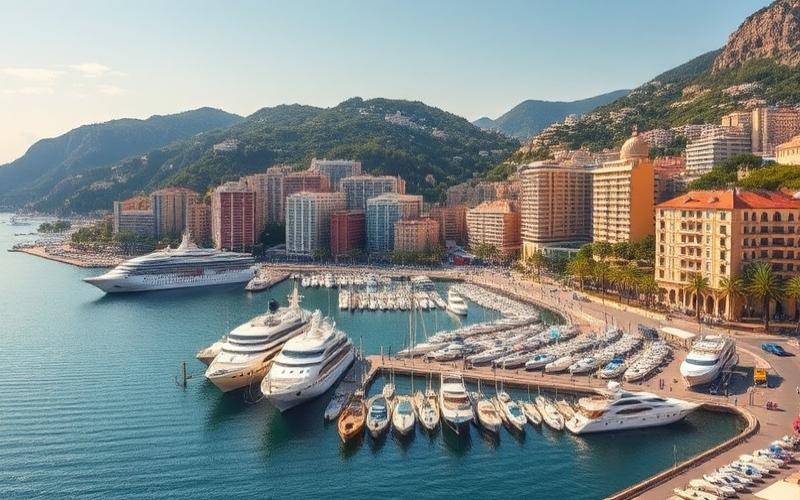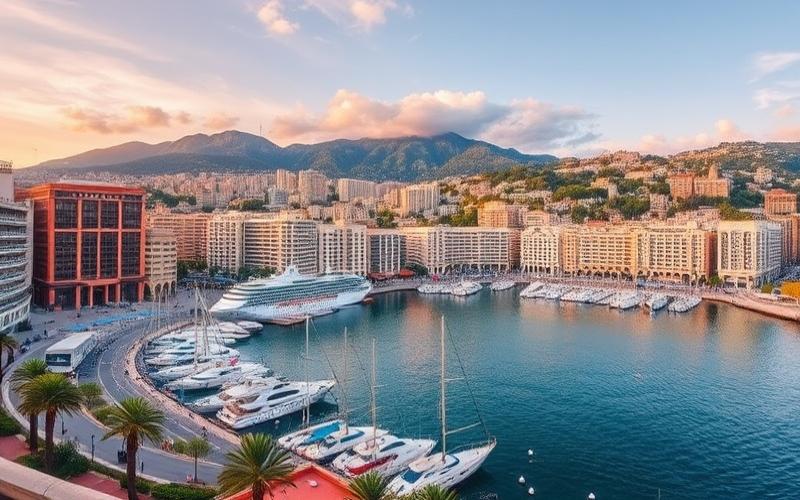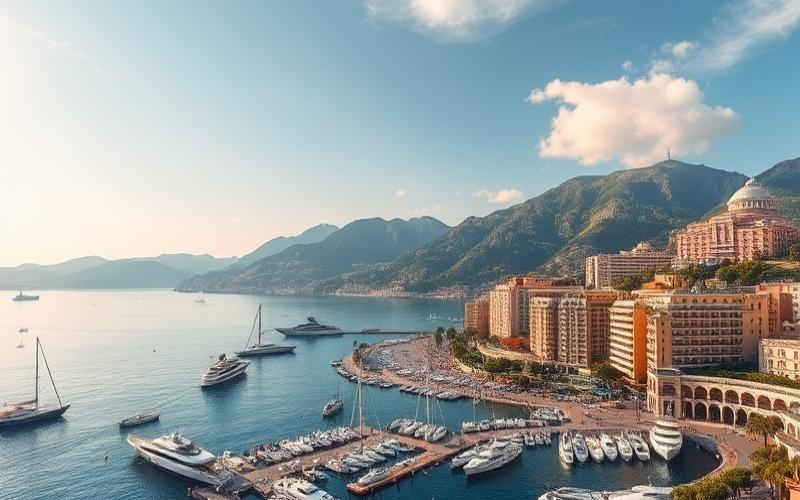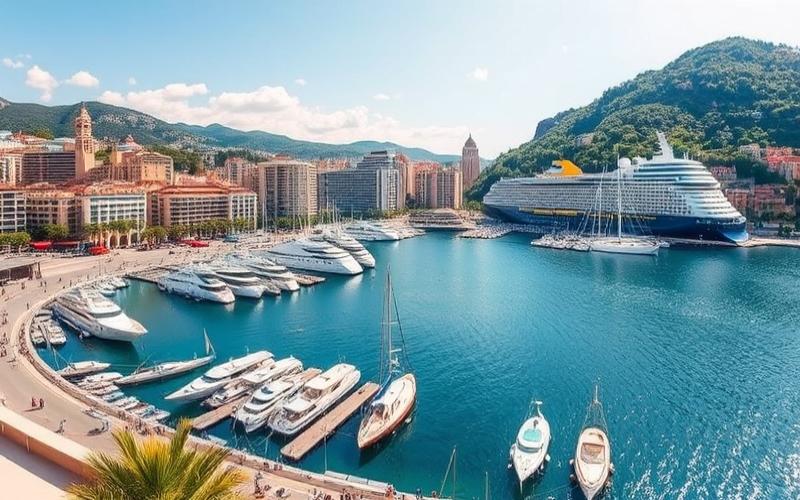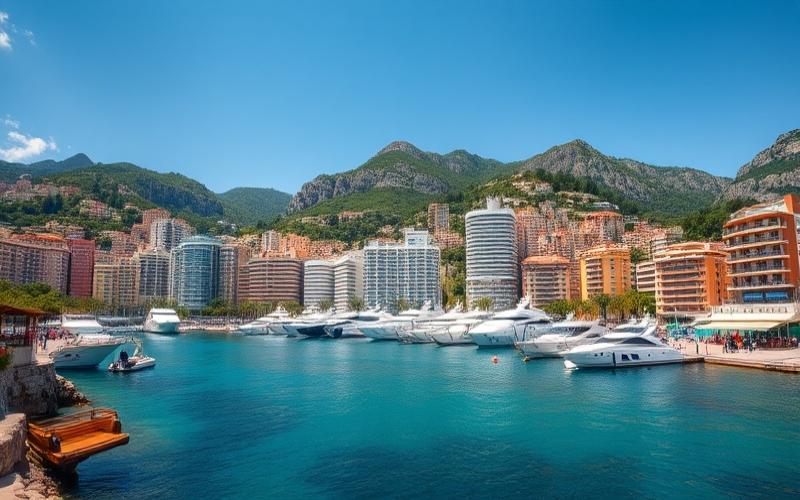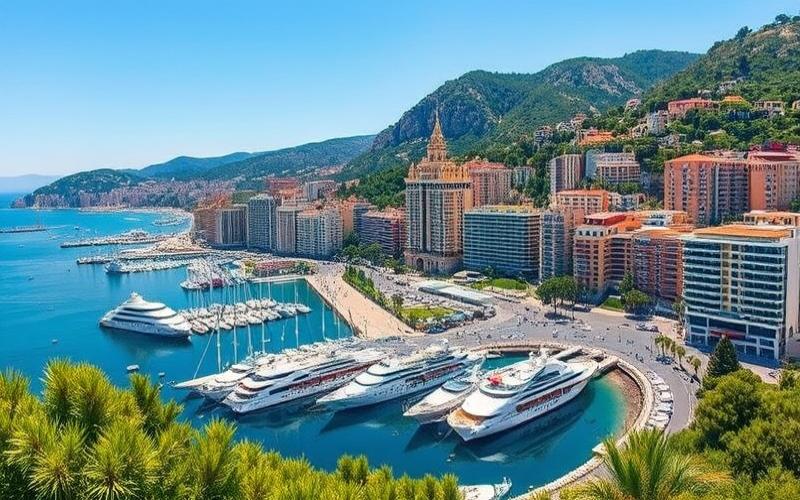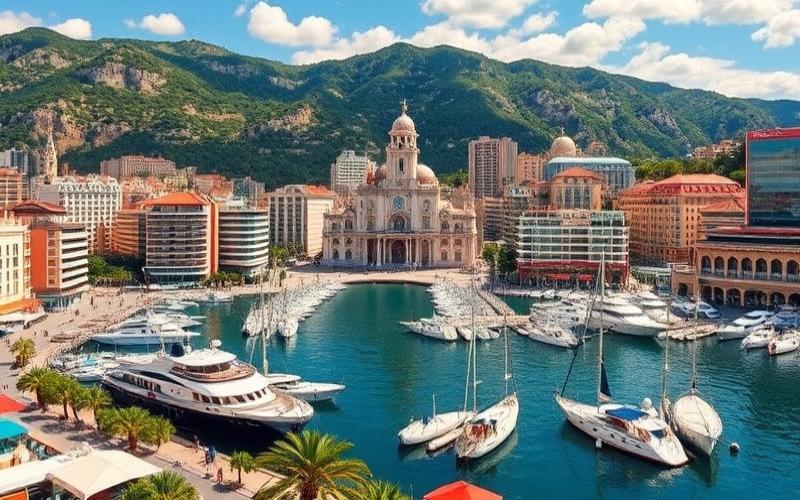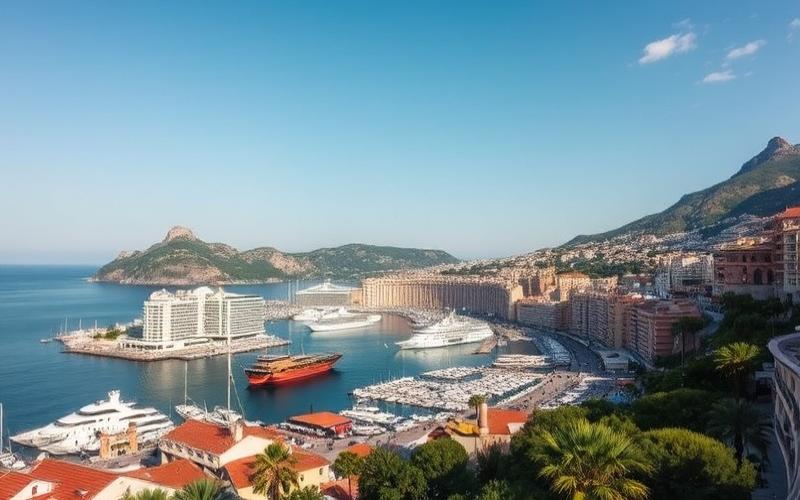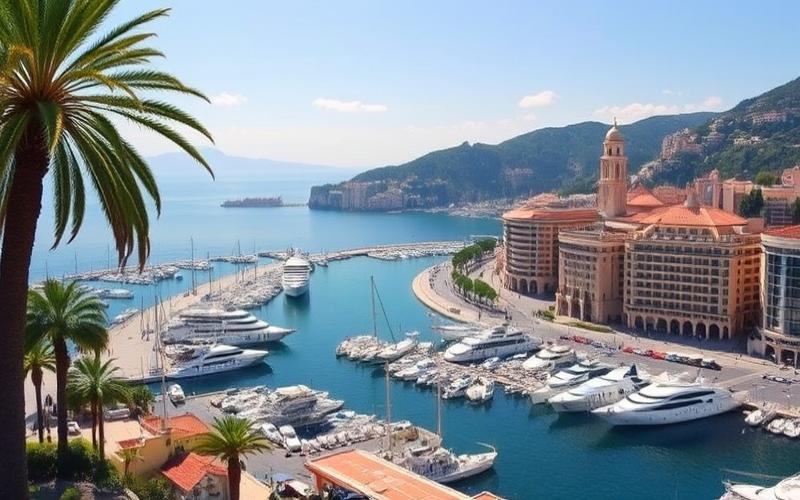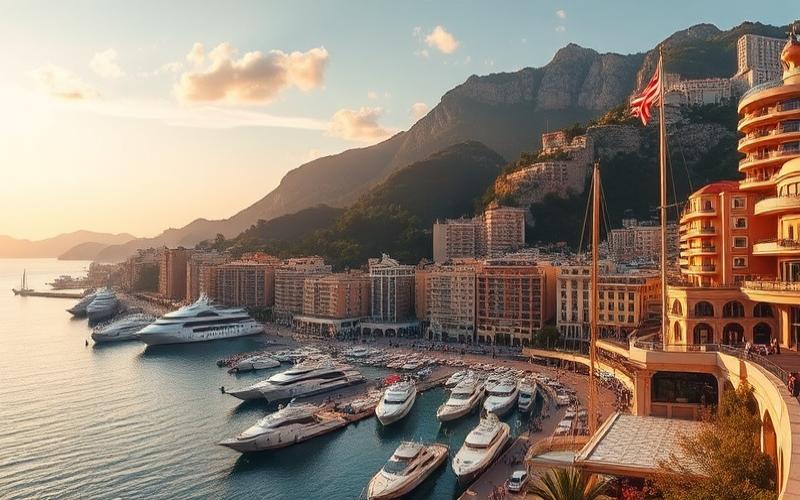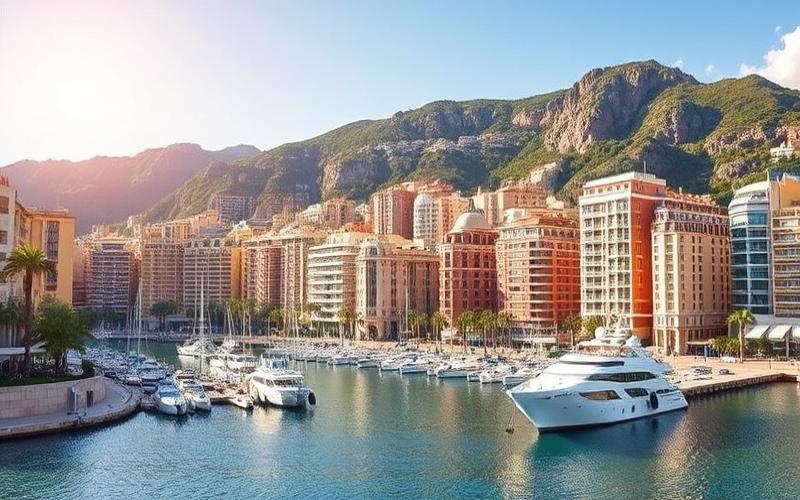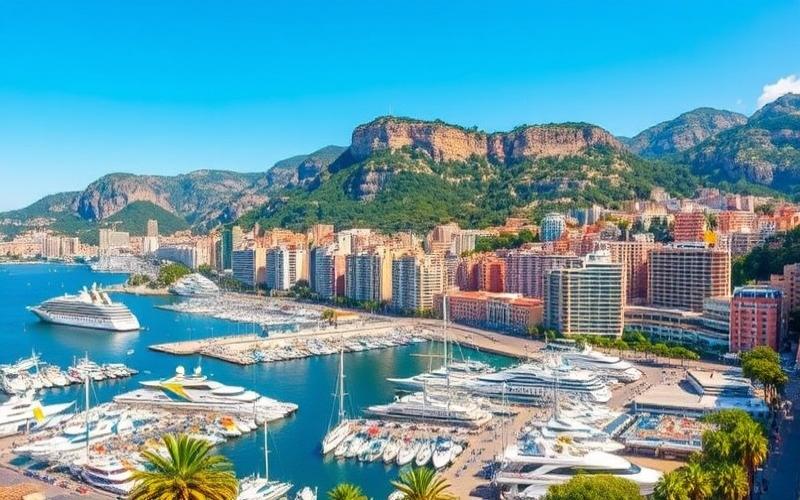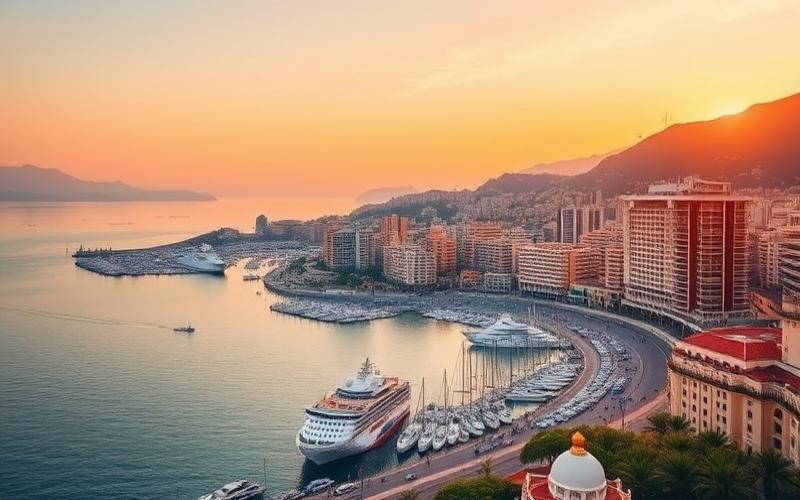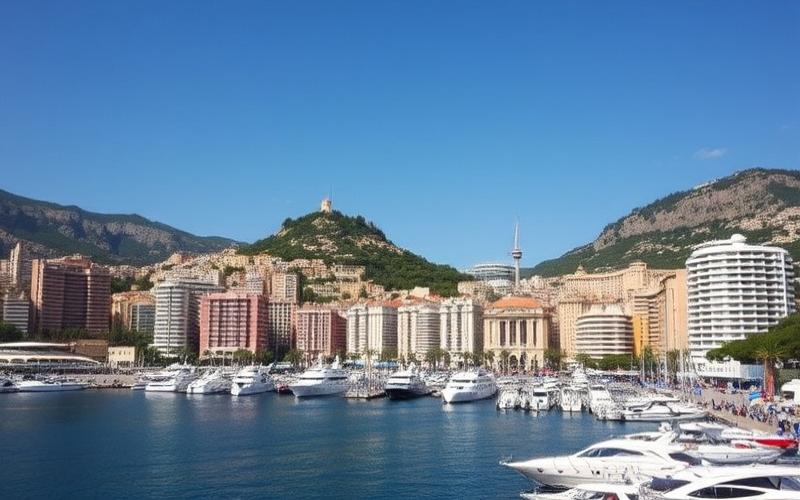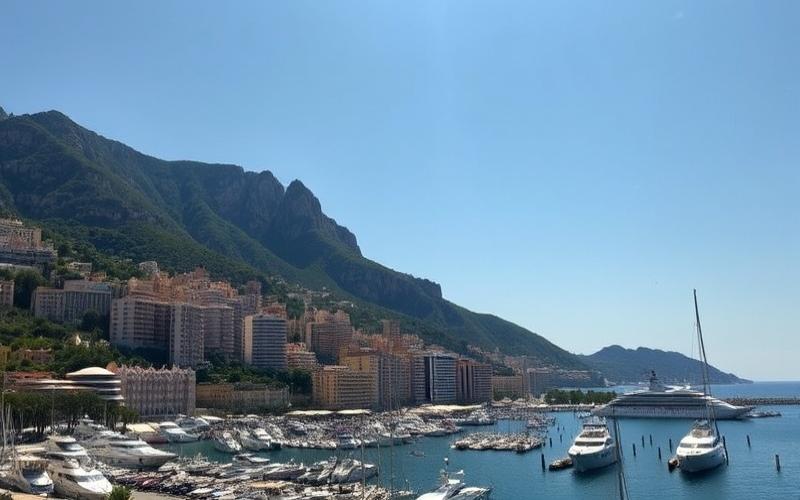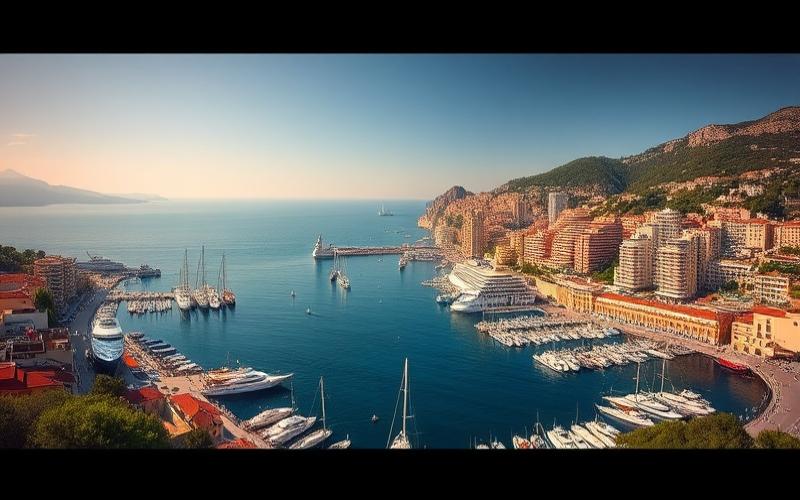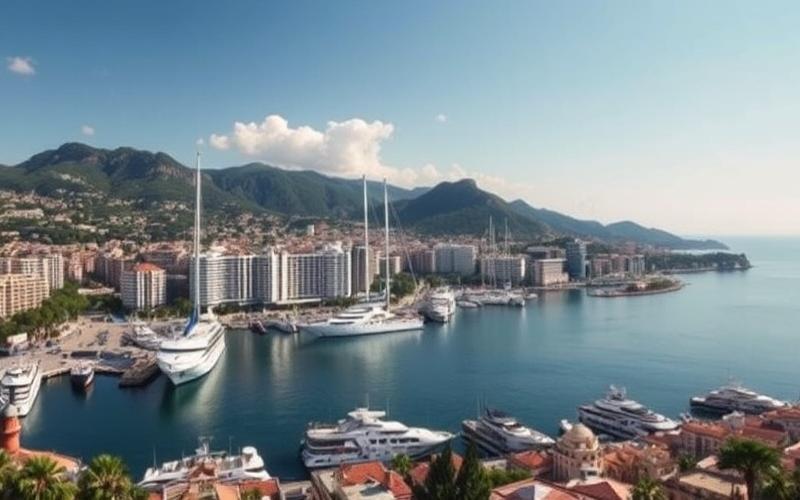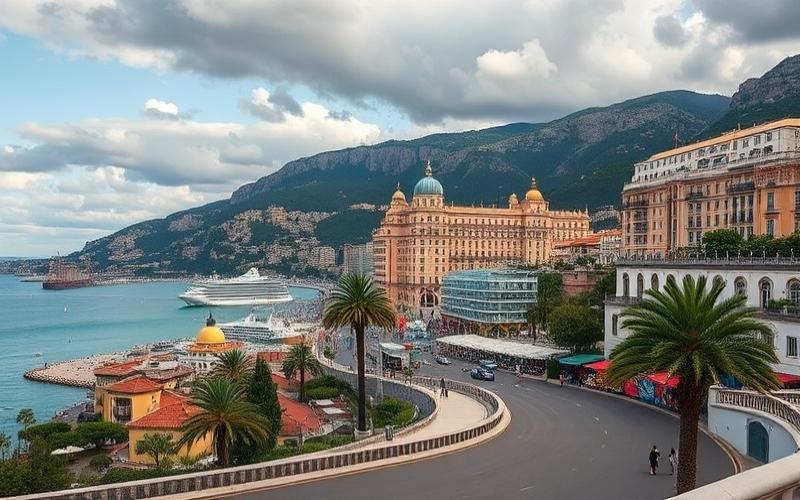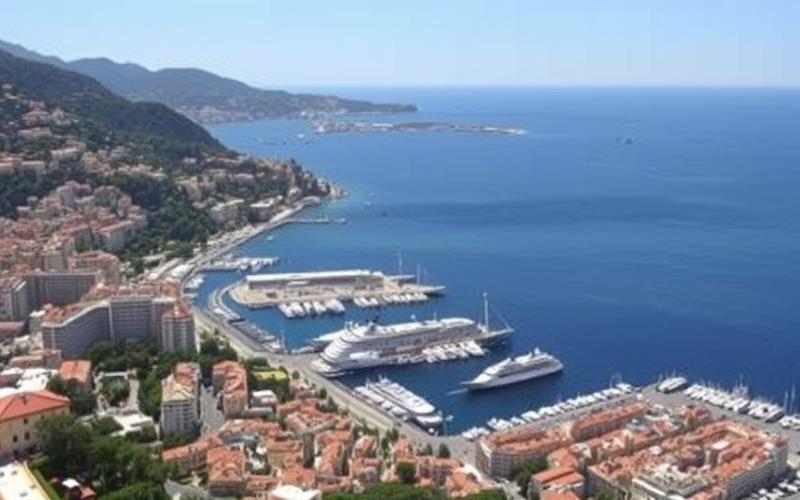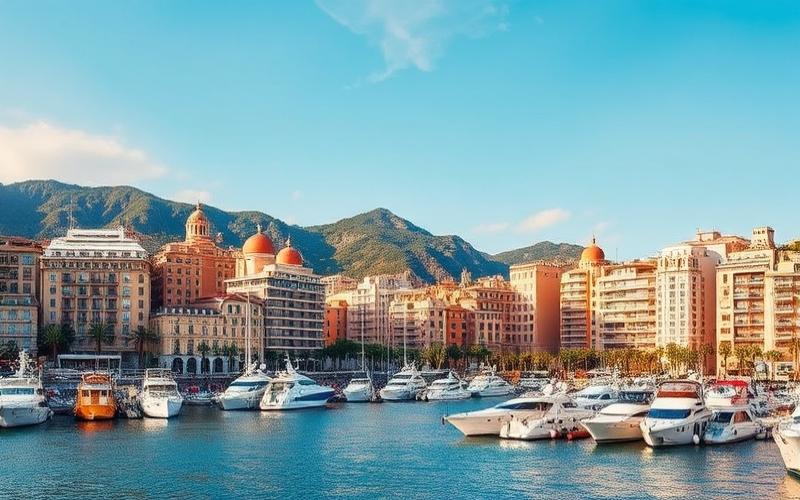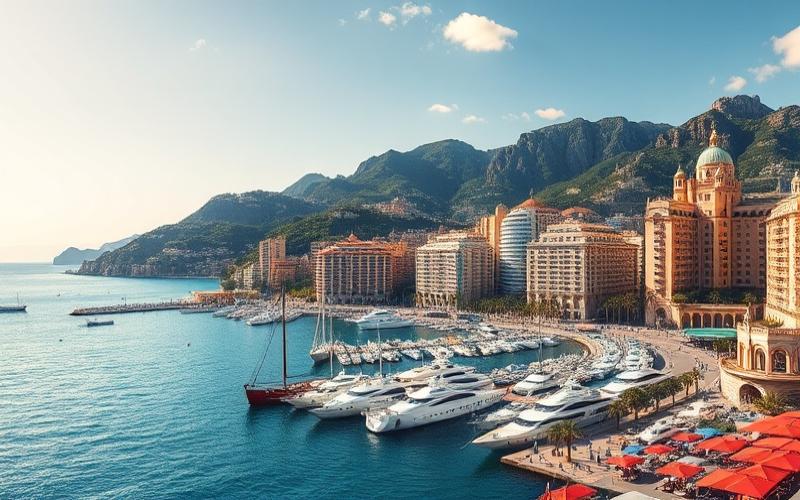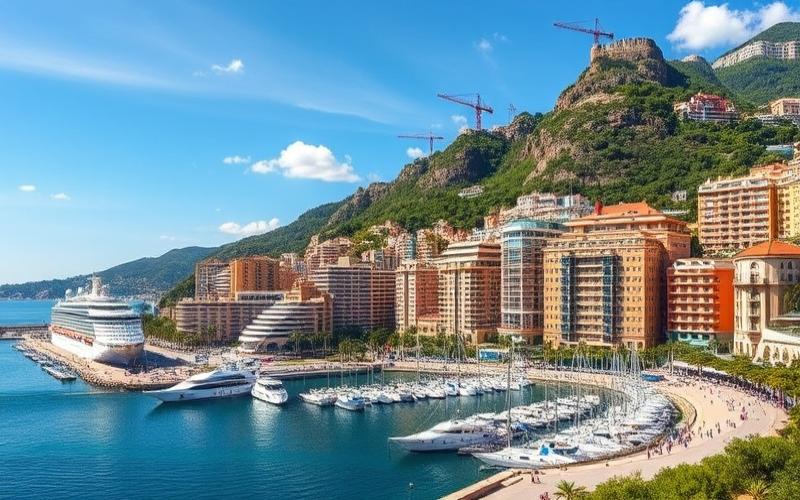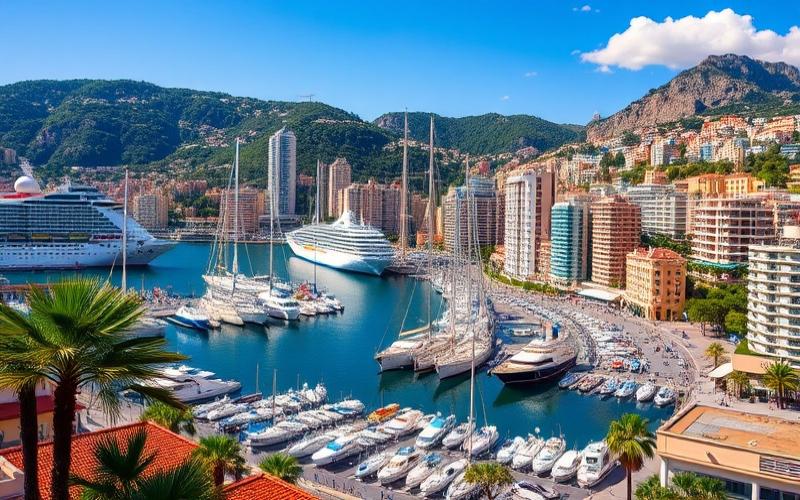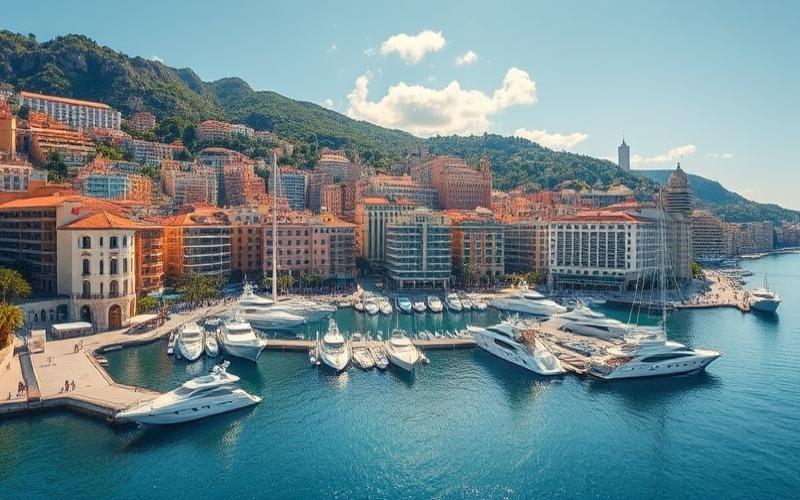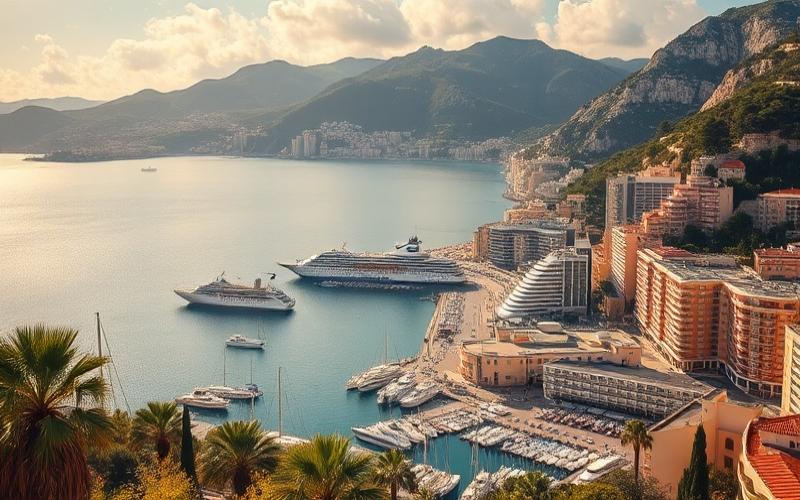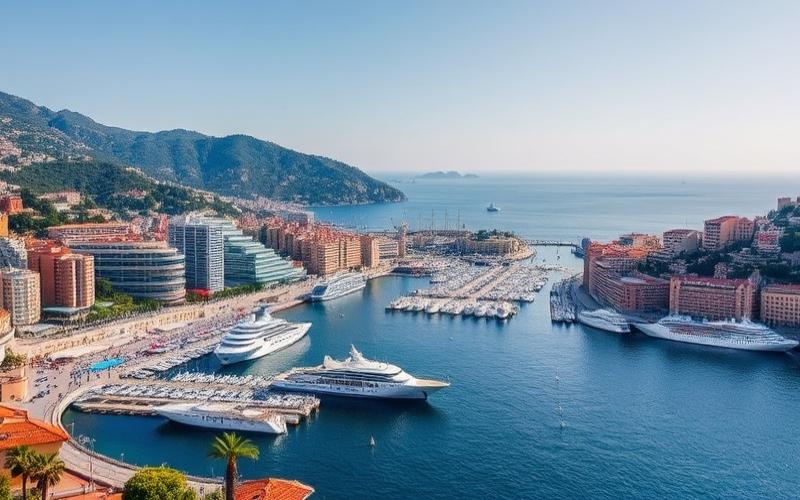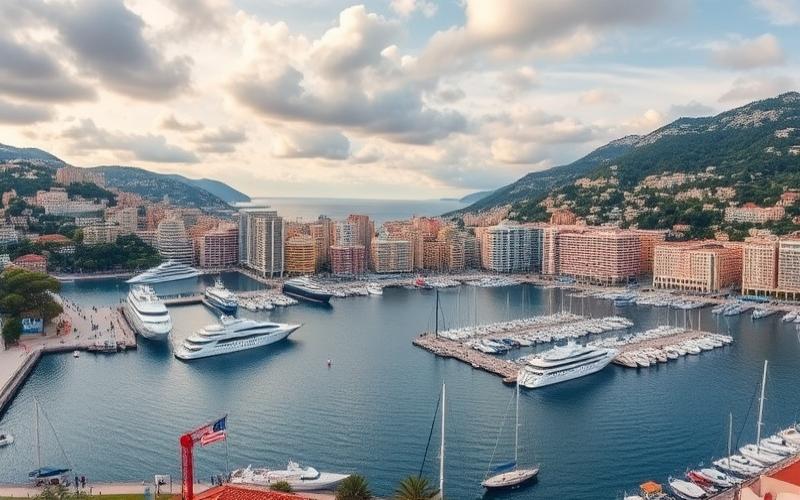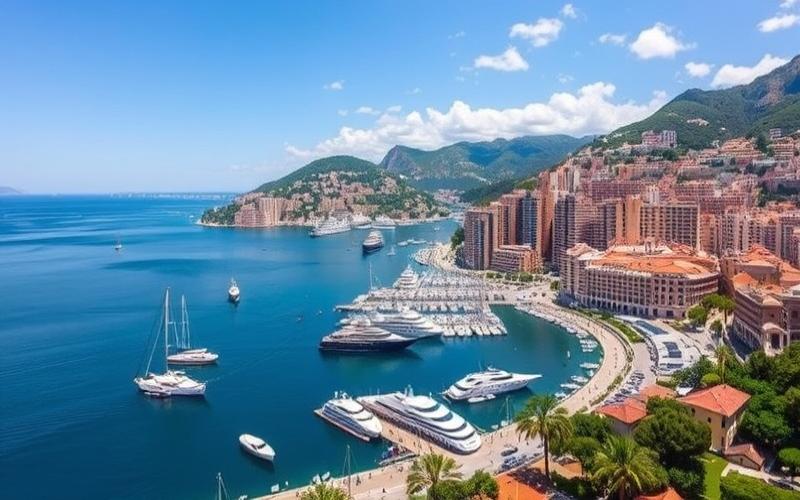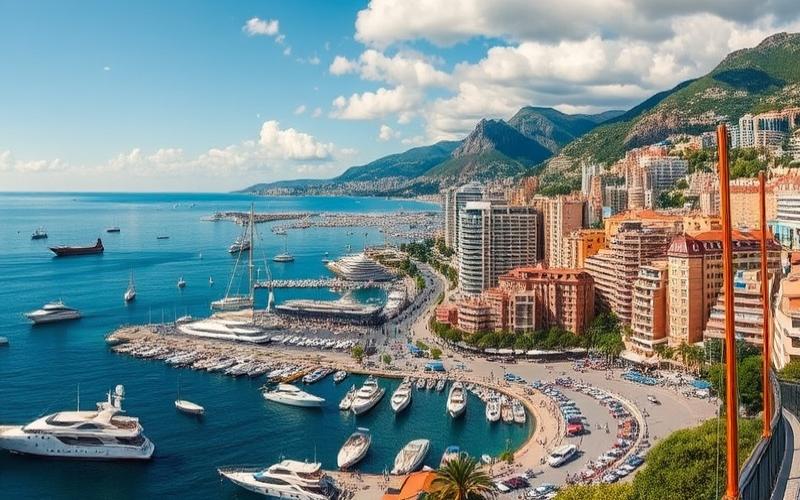
 Published on and written by Cyril Jarnias
Published on and written by Cyril Jarnias
Real Estate Investment: Monaco vs. Its Mediterranean Neighbors
Real estate investment is often considered a safe bet, but choosing between Monaco, with its prestige and history of economic stability, and its Mediterranean neighbors, rich in cultural diversity and growth potential, can be complex.
Beyond the glitz and glamour that illuminate this princely rock, Monaco offers advantageous taxation and a market decidedly oriented toward luxury, but at what cost? Meanwhile, neighboring countries present a diversity of choices and sometimes surprising profitability for those who can read between the lines.
This article aims to explore various aspects, considering legislation, acquisition costs, and profitability prospects, to guide the savvy investor in their quest for the most informed decision.
Good to Know:
Monaco is renowned for its absence of income tax for residents, making it an attractive location for wealthy investors.
Positioning Monaco Against Its Neighbors in Real Estate
| Criterion | Monaco | France (French Riviera) | Italy (Liguria) |
|---|---|---|---|
| Average Price per m² | €51,967 (up to >€100,000 for ultra-prime) | Nice: ~€5,000 to €7,000/m² Cannes: ~€8,000 to €12,000/m² Paris: ~€10,500/m² | Genoa / Liguria: often Pinel Law and incentive schemes for new housing. |
| Transaction Taxation | No income tax or property tax for resident individuals. Low registration fees (~4-6%) No capital gains tax if Monegasque resident. | Transfer duties between 5% and 8% depending on region Possible capital gains tax on real estate Annual property tax | Similar or slightly lower duties than France. Transfer duties around ~2-3%. Lower local taxes |
Recent Market Trends:
- In Monaco:
- Extremely limited supply due to restricted territory.
- Strong international demand far exceeding available supply.
- Continuous price increases (+44% in ten years).
- New projects like Mareterra selling at record prices (several villas exceeding one hundred million euros).
- Relatively low rental yields compared to the high cost of invested capital.
- In France & Italy:
- Much broader market thus diversified supply.
- Significantly lower average prices except for ultra-luxe on the Riviera.
- Occasional tensions in some attractive cities but not comparable to Monaco’s structurally tight level.
Attractive Factors for Potential Buyers:
- Monaco
- Exceptional political stability
- Advantageous tax system (no income tax, no wealth tax)
- Outstanding quality and security
- High-end services tailored to the wealthy
- Recognized international financial center
- Privileged Mediterranean climate
- France/Italy
- Rich cultural environment
- Easier access from abroad
- Varied architectural styles
- Less attractive taxation than Monaco but better availability
Availability & Demand:
In Monaco:
“The scarcity of available land, sustained international demand, and extension projects like Mareterra contribute to maintaining strong price pressure.”
“There are not enough new properties to buy.”
On the French Riviera/Liguria:
Supply is abundant compared to Monaco, even if some properties are also rare in the ultra-luxury segment.
Security & Quality of Life:
In Monaco:
Maximum urban security thanks to high police numbers per capita.
Well-maintained environmental quality despite urban density.
In Summary:
The Monegasque real estate market stands out for its world-record prices linked to extremely rare supply, exceptionally favorable tax environment, and unique institutional stability. The French Riviera or Italian Liguria offer attractive settings with more architectural and cultural diversity as well as much lower price levels – without, however, matching Monaco’s exclusive aura or taxation.
Good to Know:
Monaco stands out with some of the highest real estate prices in the world, averaging €48,000 per square meter, well above €10,000 in France, notably in Paris, and €5,000 in Italy in cities like Milan. Monegasque legislation is favorable to investors due to lighter taxation, with no income tax or real estate capital gains tax, unlike its neighbors. This principality offers economic stability and exceptional security, enhancing its appeal despite a market limited in availability due to its small area. Recent trends show constant demand, fueled by Monaco’s reputation for quality of life and security, factors often cited to justify acquisition in this glamorous enclave compared to French or Italian alternatives.
Taxation in Monaco Compared to Neighboring Countries
| Country | Personal Income Tax | Main Real Estate Taxes | Other Relevant Taxes |
| Monaco | None (except for French nationals) | No capital gains tax, no wealth tax; VAT applied at 20% (aligned with France); low transfer duties compared to France (about 4.5%) | No wealth tax or recurring property tax for resident individuals. |
| France | Progressive up to 45% | Real estate capital gains taxed at about 36.2% before allowances; high transfer duties (7-8%); IFI from €1.3M net real estate | Annual property tax and residence tax. |
| Italy | Progressive up to ~43% | Capital gains taxed between 20-26%; registration duties between 2 and ~9%; annual IMU based on cadastral value | Mandatory annual municipal IMU tax. |
| Switzerland | Varies by canton (~22-40%) | Tax on real estate gains variable by canton; low or moderate transfer duty; annual wealth tax | Property tax in some cantons. |
Key Points of Monaco’s Tax System:
- No income tax for Monegasque residents, except notable exception for French citizens who remain subject to French tax regime.
- Complete absence of wealth taxes such as IFI or ISF, as well as no taxation of capital gains realized by resident individuals upon resale.
- Companies are subject to corporate tax (33.33%) only if more than 25% of turnover comes from outside Monaco.
- VAT is applied at the same rates as in France: standard rate at 20%, with specific thresholds depending on the type and volume of commercial operations.
Specific Tax Advantages for Real Estate Investment in Monaco:
- No recurring annual taxation like property tax or IFI/ISF unlike France, Italy, or some Swiss cantons.
- Complete absence of personal taxation during real estate sales (no local residential tax or social contributions).
- Reduced transfer duties: about 4.5% versus 7–8% in France.
“Investors benefit not only from very light taxation but also from great regulatory stability… The total cost related to taxes during purchase and ownership remains significantly lower than in neighboring countries.”
Concrete Numerical Examples Illustrating These Differences:
| Country | Gross Resale Amount (€) | Capital Gain (€) | Applicable Taxation |
| Monaco | 3,000,000 | +500,000 | €0 – no taxation |
| France | 3,000,000 | +500,000 | ~€181,000 levied (36.2%, excluding duration allowances/social contributions included), + possible IFI during ownership |
Initial purchase:
- In Monaco: For a property bought/sold at the same price – notary fees/duties approx. 4.5% i.e., €135,000.
- In France: Duties approx. 8% i.e., €240,000.
Overall Impact on Total Cost and Real Estate Profitability:
The extremely low tax pressure allows for:
- A higher net yield after resale,
- An almost total absence of “tax erosion” linked to annual taxes,
- Better financial predictability thanks to the stable framework.
Legal & Administrative Implications for Foreign Investors:
- Prior obtaining of Monegasque resident status required (justification of sufficient financial resources & housing);
- Rigorous registration with local authorities;
- Possible obligation for certain nationalities (e.g., French) to respect their own national legislation despite physical residence;
- Less administratively complex than Italy/France where multiple declarations and enhanced anti-money laundering compliance are added.
⚠️ Investors should seek specialized advice to optimize their asset structuring according to their nationality and objectives.
The choice between investing in Monegasque real estate versus neighboring countries therefore depends mainly on the applicable personal tax regime and the envisioned project — Monaco offering maximum optimization both in terms of taxation and asset management
Good to Know:
Monaco offers considerable tax advantages, notably due to the absence of income tax for Monegasque residents, unlike its neighbors like France, Italy, and Switzerland, where tax rates can be high. In France, for example, income tax can reach up to 45%, while Italy and Switzerland also impose significant rates depending on income. Regarding real estate, Monaco levies no wealth tax, strongly contrasting with France, where the real estate wealth tax applies to assets over one million euros. This more advantageous tax framework in Monaco translates to potentially higher profitability for real estate investors. However, foreign investors in Monaco must navigate specific legal and administrative implications, particularly in terms of residence and transaction regulations. These tax disparities influence the overall cost of real estate purchase and maintenance, making Monaco particularly attractive for long-term investments compared to neighboring countries.
Advantages and Disadvantages of Investing in Monaco and Neighboring Countries
Advantages of Investing in Monaco
- Extremely advantageous taxation:
- No income tax for individuals (except for French nationals subject to specific agreements).
- Absence of wealth taxes, capital gains tax, and no annual property tax.
- Reduced or nil inheritance taxes between spouses and direct children.
- International prestige & event attractiveness:
- Monaco benefits from global prestige thanks to iconic events like the Formula 1 Grand Prix or the Monaco Yacht Show.
- The principality attracts an international wealthy clientele seeking security, luxury, and discretion.
- Economic and political stability:
- Robust economy, strict budget management, political stability allowing for long-term planning.
- Exceptional security:
- Among the lowest crime rates in the world.
- Omnipresent police ensuring a very safe environment for residents and investors.
- Quality of life & privileged geographical location:
- Pleasant Mediterranean climate with over 300 sunny days per year.
- Immediate proximity to Nice, Milan, Geneva thanks to high-end infrastructure (international airport).
| Advantages | Concrete Details |
|---|---|
| Taxation | No income tax or wealth tax; no property tax |
| Security | Enhanced surveillance; very low incident rate |
| Stability | Stable governance; solid economy even in uncertain global times |
| Prestige | Hosting major international events; luxurious image |
Potential Disadvantages in Monaco
- Extremely high real estate market cost
- Average price often exceeding €50,000/m² in high-end residential real estate
- Limited supply linked to the small territory size
- Restrictions for non-residents
- Obtaining resident status conditioned notably by a significant bank deposit (at least €500,000) and the obligation to rent or buy a property locally
- Rigorous administrative procedures
- Significant urban density
- Very restricted urban space: possible feeling of “suffocation,” few private green spaces
- Daily life sometimes marked by tourist influx during major events
Real estate prices there are among the highest in the world while supply is naturally limited by the restricted area. The steps to become a resident can discourage some foreign investors not wishing to commit long-term.
Investing in Neighboring Countries (France – French Riviera/Italy)
Advantages
- Generally lower real estate prices compared to those in the Principality
- Greater typological diversity: villas with land, rural houses, or urban apartments according to preferences
- Often relaxed regulations regarding purchase by non-European or international residents
- Easier access to local markets while remaining geographically close to Monegasque dynamism
Disadvantages
- Much less favorable national taxation: varied local taxes depending on municipalities/regions (mandatory annual property tax), possible taxation of rental income/various levies depending on tax status
- National economies potentially less stable in the face of international crises than that guaranteed by the Monegasque Principality
- Variable security depending on precise location in each country/region
| Country | Average Prices m² | Taxation | Property Diversification | Stability/Security |
|---|---|---|---|---|
| Monaco | >€50,000/m² | Very favorable | Rare/luxury supply | Excellent |
| French Riviera FR/IT | Often <€10,000/m² | Less advantageous | Wide choice | Variable |
Choosing between investing directly in Monaco or its surroundings will therefore depend mainly on the available budget, personal asset objectives, as well as expectations related to the desired lifestyle.
Good to Know:
In Monaco, investing in real estate comes with considerable tax advantages, with an absence of income tax, as well as a very stable economic and security framework, not to mention the prestige associated with this highly sought-after destination. However, high prices can be a deterrent, with an average reaching nearly €54,000 per square meter, while restrictions limit purchase by non-residents and density restricts available space. In comparison, neighboring countries like France or Italy offer much more accessible prices and greater property diversity, without Monaco’s rigid restrictions, thus facilitating access for all types of investors. Nevertheless, it is crucial to weigh generally higher tax rates and ensure economic stability and security, which can vary considerably depending on the chosen region. Ultimately, even if Monaco offers a secure and fiscally attractive environment, neighboring countries appeal due to their financial accessibility and regulatory flexibility, requiring thorough analysis according to each investor’s personal priorities.
Disclaimer: The information provided on this website is for informational purposes only and does not constitute financial, legal, or professional advice. We encourage you to consult qualified experts before making any investment, real estate, or expatriation decisions. Although we strive to maintain up-to-date and accurate information, we do not guarantee the completeness, accuracy, or timeliness of the proposed content. As investment and expatriation involve risks, we disclaim any liability for potential losses or damages arising from the use of this site. Your use of this site confirms your acceptance of these terms and your understanding of the associated risks.

